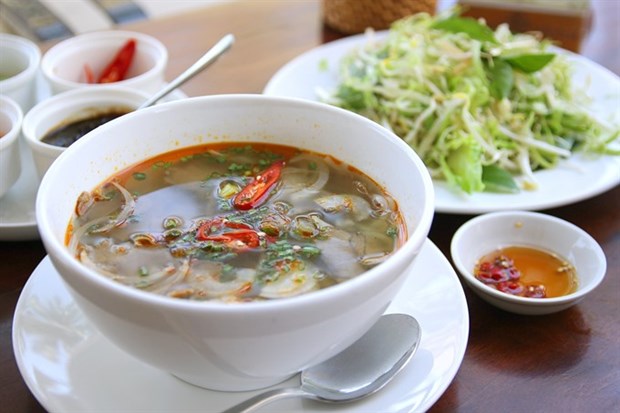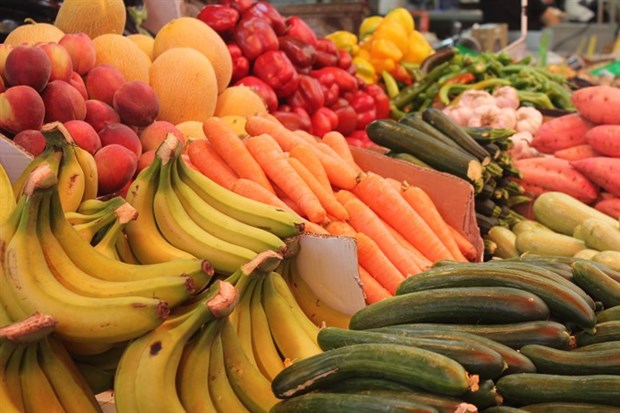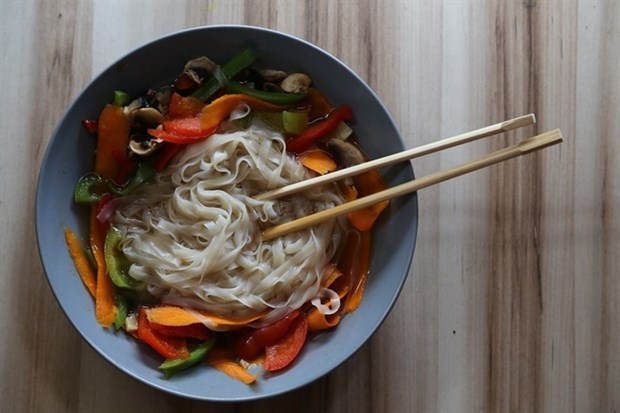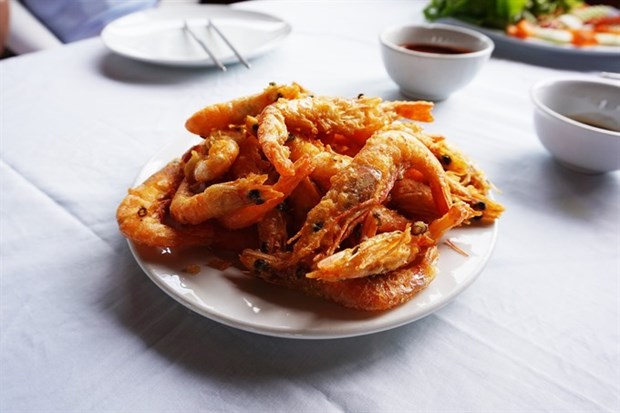
Healthful: Rice vermicelli soup in a Vietnamese restaurant in Huế. Every Vietnamese meal is accompanied by super healthy soups and salads. - Photo pixabay.com
You
get to experience a different culture and enjoy other opportunities that may
not exist back home.
The
challenges to this are obvious too, and nowhere are they more apparent than the
adjustments you might need to make to your eating and drinking habits.
This
is the area where people often see “clear and present dangers”, with popular TV
programmers highlighting exotic dishes like deep friend insects, snakes and
‘congealed blood cakes.’
Adding
to this challenge are subtle aspects of a different dining etiquette that could
the typical guide book might not inform you about.
That
said, expats moving to Việt Nam should be glad to know that Vietnamese cuisine
is often described as one of the healthiest in the world, not to mention
delicious. It is generally low in fat and calories, and bursting with
ingredients full of antioxidants and nutrients. Ingredients and groceries, in
general are very affordable and eating out can be incredibly cheap.
Enough
has been said and written about popular and iconic Vietnamese dishes like phở (rice noodle soup with beef, chicken
or pork) and gỏi cuốn (fresh spring
rolls), and the praise is well deserved.
It
is the easy availability of such good food and natural drinks like coconut
water, again packed with nutrients like potassium, manganese, magnesium,
folate, calcium and selenium, as also an amazing array of tropical fruits,
including exotic ones like the dragon-fruit and durian, that makes this country
very special.
The
icing on this cake is the natural friendliness and hospitality with which you
are served.

Abundance: Fruits and vegetables on display in a market. - Photo pixabay.com
Eating healthy
And
it is not just that the food is healthy; the way it is eaten is very healthy,
too.
The
preponderance of clear soups, fresh greens that are not used as salads anywhere
else, rice and steamed and grilled meat dishes are had with chopsticks and a
porcelain soup spoon.
The
dishes are typically placed on a big round tray, and family members sit around
and pick them off with chopsticks. This makes for slow eating, allowing people
to chew food for longer; something that doctors highly recommend.
Just
so you know, it is usually good etiquette to wait for the eldest male to take a
mouthful of food before everyone else begins eating, and it’s normally
considered polite to keep both hands on the table through the meal.

Meatless goodness: Noodle soup served in a vegan Vietnamese restaurant - Photo pixabay.com
Expat concerns
The
main issues expats are warned of here are food and water-related illnesses.
These can be avoided by checking that the food is piping hot and avoiding any
raw meat or fish. Careful expats may even decide not to eat uncooked vegetarian
dishes like salads, for fear that they may have been washed in unclean water.
Many restaurants will boil vegetables if asked. Like any other countries in the
region, tap water is generally avoided, and it is common to drink bottled water
or filtered drinking water, rather than getting it straight from the tap.
Special conditions
Peanuts
and peanut oil are used for cooking in Việt Nam, so those with nut allergies
(or intolerances) can check the ingredients before eating unfamiliar dishes.
Preparing
a note explaining in Vietnamese any allergy or intolerance you may have can
ease your way around.

Popular snack: Tempura shrimp served in a Vietnamese restaurant - Photo pixabay.com
Food fests
Many
of Việt Nam’s food festivals and events celebrate international cuisine, as
well as traditional Vietnamese cooking.
The
Hội An International Food Festival, for example, features twelve chefs from
around the world, cooking up dishes from their home country. It also showcases
local dishes like cao lầu, which
contains a special rice noodle from Hội An. These events are a good opportunity
for expats new to the country, but the bottom line is this: Việt Nam is one of
the best places in the world for healthy food, and whether you opt for
street-side eateries of more upscale ones, every day is a food fest.
By Sabrina
Bucknole/ VNS